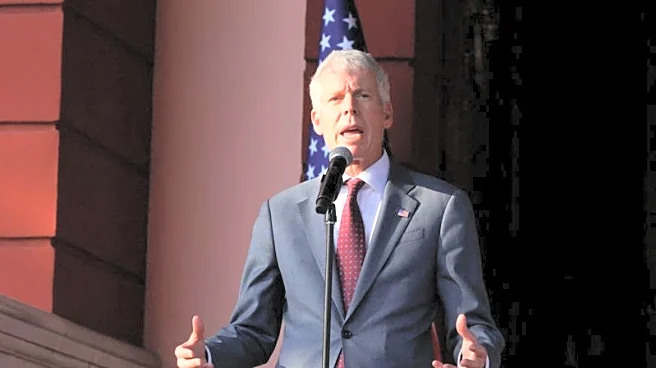What's Happening?
Major League Baseball has announced that the World Series will commence on October 24, maintaining its original schedule despite previous considerations for an earlier start. The decision comes after the New York Mets won Game 5 of the National League Championship Series but were defeated by the Los Angeles Dodgers in Game 6. Historically, MLB had considered moving Game 1 to October 22 if both League Championship Series concluded by October 19. This flexible scheduling was first introduced last year. The World Series will start on a Friday for the fifth consecutive year, a tradition not seen since 1915 prior to 2022. The playoff format includes twelve teams, with the top two teams in each league receiving first-round byes. The Division Series will follow a best-of-five format, with the higher seed hosting Games 1, 2, and potentially Game 5.
Why It's Important?
The decision to maintain the original World Series start date impacts various stakeholders, including teams, broadcasters, and fans. For teams, it ensures a consistent schedule, allowing for strategic planning around player rest and game preparation. Broadcasters benefit from a predictable schedule, aiding in advertising and programming decisions. Fans can plan their viewing experiences without last-minute changes. The playoff format, which includes first-round byes for top teams, emphasizes the importance of regular-season performance, potentially affecting team strategies throughout the season. The decision also reflects MLB's commitment to maintaining tradition while balancing flexibility in scheduling.
What's Next?
With the World Series set to start on October 24, teams will focus on the remaining games in the League Championship Series to secure their spots. The playoff format will continue to influence team strategies, particularly regarding pitcher rotations and player rest. Broadcasters and advertisers will finalize their plans for coverage, while fans anticipate the culmination of the baseball season. MLB may continue to evaluate its scheduling practices in future seasons, considering the balance between tradition and flexibility.











